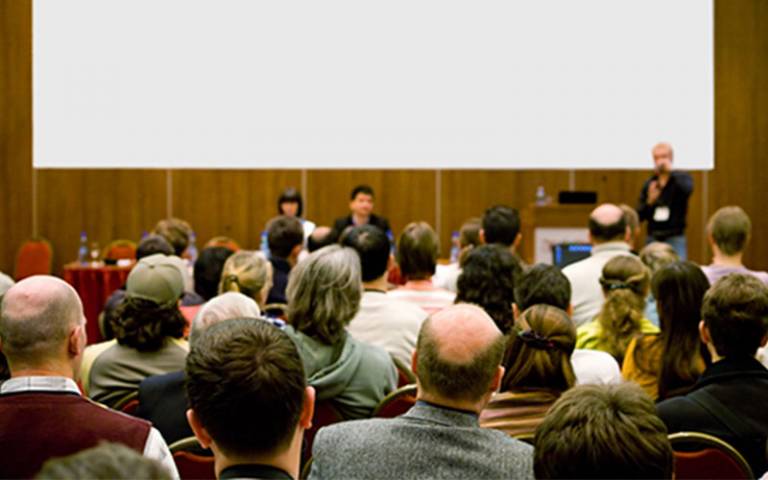How a symposium can be used to assess students’ work
Dr Suzanne Ruddy, UCL Molecular Biosciences, shares how her students take part in a realistic symposium as part of their assessed work.

11 April 2014
Dr Suzanne Ruddy explained at the UCL Teaching and Learning Conference 2014 (now reformatted as the UCL Education conference) how third-year undergraduates completed a research project and delivered an oral presentation as part of the Molecular Biosciences Undergraduate Research Symposium – a new model developed for the 2013/14 academic year.
The aim is to offer an authentic experience of a symposium that, just like the Teaching and Learning event at which Suzanne was presenting, takes the form of a one-day conference with parallel sessions, reception and industry representatives.
Undergraduates now present abstracts ahead of the conference, followed one week later with oral presentations of their projects, to a mixed audience of staff and students.
A form of assessment with more engagement from students
As in previous years, staff assess the presentations and this mark contributes to the final project mark.
Suzanne says it is a marked improvement on the week-long intensive presentation schedule previously employed, where attendance numbers were small and diminished as the week drew on.
As a result of the experience, Suzanne says final year students learn presentation skills and gain familiarity with the structure of a scientific conference.
The benefits for students
- increased confidence
- appreciation of the importance of telling the story of their research
- understanding of the relevance of their own work in relation to others’
- the chance to see their peers present and to reflect on how far they have come in three years.
There is also the benefit of practising networking skills with staff, relevant professional bodies and industrial representatives.
Additionally, the symposium takes place before the students submit their final written project report, and students reported that this was very beneficial in making them consider the overall context of their research and the implications of their findings.
The earlier abstract deadline and necessity to have figures and data interpretation ready for the symposium helped break down the large task of the written dissertation, since this effectively ensured that these aspects of the final report were complete well in advance of the final report deadline.
Feedback gained as a result of the question and answer session or the informal reception at the end of the day, can also be incorporated into their written discussion.
Encouraging attendance by other year groups to expand benefits
First and second year students were also invited to attend, and these attendees gained through seeing the range of research subjects available (relevant for their future project selection), as well as what will be expected of them in the coming years.
The event is partially funded by a Teaching Innovations Grant.
 Close
Close

